Microbes
-
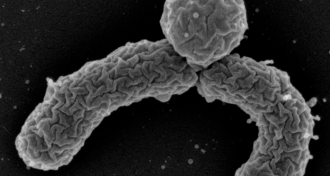 Health & Medicine
Health & MedicineNew antibiotic candidate shows promise
Tests in lab dishes and mice suggest an experimental compound called teixobactin can kill staph, TB microbes and other bacteria.
By Nathan Seppa -
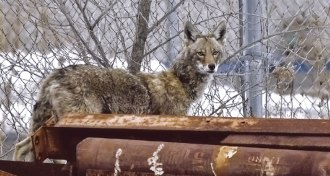 Ecosystems
EcosystemsCities are brimming with wildlife worth studying
Urban ecologists are getting a handle on the varieties of wildlife — including fungi, ants, bats and coyotes — that share sidewalks, parks and alleyways with a city’s human residents.
-
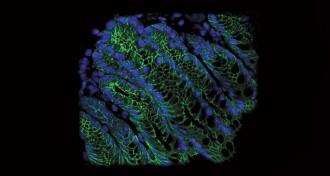 Microbes
MicrobesThe year in microbiomes
This year, scientists pegged microbes as important players in several aspects of human health, including obesity and cancer.
By Meghan Rosen -
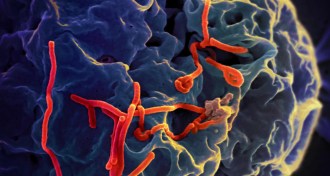 Microbes
MicrobesYear in review: Science faces Ebola epidemic
West Africa’s 2014 Ebola epidemic showed what can happen when a contagious virus emerges where cultural practices, public fears and porous borders fuel the spread of disease.
By Nathan Seppa -
 Microbes
MicrobesMicrobes floating among clouds may munch on sugar
Floating in a cloud and noshing sweets while wrapped in a cozy bubble sounds like a pleasant dream. For some lucky bacteria, it may be a reality.
By Beth Mole -
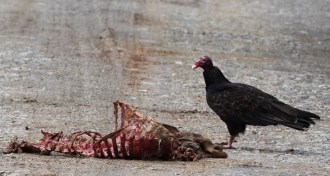 Animals
AnimalsVulture guts are filled with noxious bacteria
Vultures’ guts are chock-full of bacteria that sicken other creatures.
-
 Environment
EnvironmentColorado deluge produced flood of drug-resistance genes
Flooding in Colorado’s South Platte River Basin washed antibiotics and drug-resistance genes into pristine waterways.
By Beth Mole -
 Archaeology
ArchaeologyFeedback
Readers ask questions about a study on sweeteners, how scientists recognize primitive tools and the purpose of a dinosaur's sail.
-

-
 Animals
AnimalsTen real-life Halloween horrors in the natural world
Vampires and witches are nothing compared to mind-controlling parasites, nose ticks and antibiotic-resistant superbugs.
-
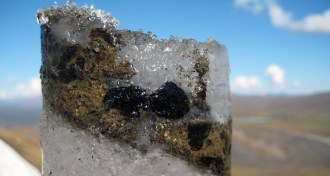 Microbes
MicrobesFrozen caribou feces offers look at virus evolution
Genetic material extracted from caribou poop gives hints about how viruses evolve.
-
 Health & Medicine
Health & MedicineFeedback
Readers discuss methods to prevent sepsis and whether genes are thrifty, while Tina Saey clears up some confusion regarding Ebola's airborne status.